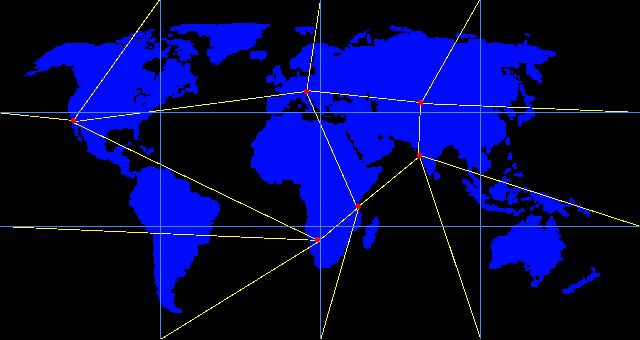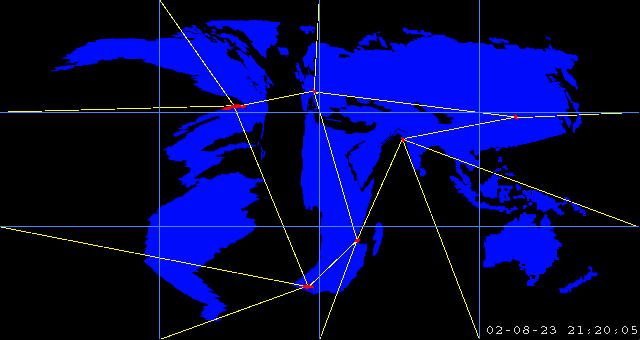
Circulating among five servers located in Los Angeles, Windhoek, Dar es Salaam, Mumbai (Bombay) and Bishkek is a signal2 that, depending on the extent and state of the respective networks and lines connecting them, requires different lengths of time to travel the respective distances. The measured time intervals that the signal needs to get from one server to the next are correlated with the actual geographical distances and transferred by a Java applet onto a world map. The result is a real-time metric distortion of the map, which is updated after every cycle of the ping signal.

The cartographic registration of global geological, political or economic conditions has always been a part of the making of maps which, as positional and organizational models of spatial relationships and power structures, have also constituted a drawing board of history and international politics. As models that still function in this way, world maps store and link global data to worldviews. In this sense, they perform multiple functions ranging from representation to "utopometric" design. Seen from this perspective, maps reflect the process of progressive globalization that is currently undergoing a reordering in the form of the telematic mediatization and technical acceleration of spatial and temporal relationships. In this process, the structural knowledge of relations, balances of power, and linkages becomes more decisive than that of actual distances, whereby the interest in geographical locations replaces interest in dynamics, transformations and reciprocities.
Download application as a jar file
A conventional Mercator projection of the earth was chosen as the point of departure for the "Biophily Warp Map". In the Mercator projection, straight paths on the map correspond to curved or circuitous routes in the geography of the real world; on the other hand, the "Warp Map" gives rise to "Internet- metric" distortions due to differences in network dimensions and server structures that, in turn, illustrate political, technological, and economic conditions.

Contact: Thomas Feuerstein Peter Chiocchetti